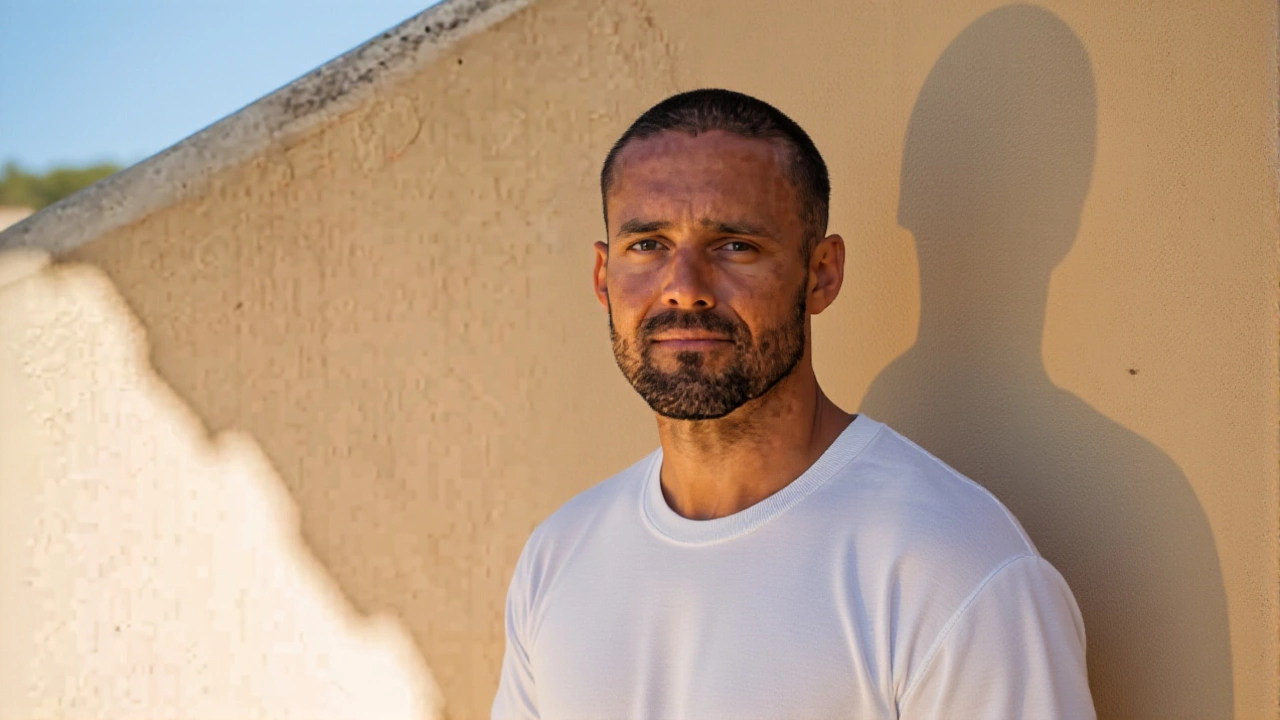Spencer Matthews to Investigate If He’s a Psychopath in Channel 4 Documentary

What if the man you’ve seen sipping prosecco on Made in Chelsea turned the camera on himself — and asked, Am I a psychopath? That’s the startling premise behind Channel 4’s new documentary, Spencer Matthews: Am I A Psychopath, commissioned on September 26, 2025, and produced by Mettlemouse Productions Limited. The announcement, made public across Broadcast Now, Realscreen, and Channel 4’s official Instagram, didn’t just drop a show title — it dropped a psychological grenade. And Spencer Matthews, the former reality star known for his champagne-fueled drama and eyebrow raises, is now the reluctant subject, host, and emotional center of it all.
Why This Isn’t Just Another Reality TV Spin-Off
This isn’t a gimmick. Not really. Channel 4 has built its reputation on documentaries that peel back the layers of uncomfortable truths — from The Secret Life of the Teenage Brain to Inside the Mind of a Murderer. But this one is different. Most psychopathy docs feature experts explaining the condition to the public. This one flips it: a man who’s spent a decade performing emotional volatility on screen now asks if he’s been faking it — or if it’s always been real. The title alone — Am I A Psychopath? — is a gut punch. It doesn’t ask, “What is psychopathy?” It asks, “Could I be one?” And that’s the hook.According to Jonn on TV’s report on September 26, 2025, the documentary aims to “question everything we think we know about psychopathy.” That’s a bold claim. Psychopathy isn’t just about being cold or manipulative. It’s a clinical construct, measured by tools like the Hare Psychopathy Checklist-Revised, and often misunderstood as synonymous with violence. But most psychopaths aren’t serial killers. They’re CEOs, lawyers, even reality TV stars. And that’s the uncomfortable truth this film might force us to face.
The Man Behind the Microphone
Spencer Matthews, full name Spencer Compton Cavendish Fiennes Matthews, rose to fame on E4’s Made in Chelsea, which began in 2011 and has since aired over 20 seasons. His on-screen persona — charming, volatile, emotionally erratic — made him a fan favorite and a tabloid staple. He’s been in high-profile relationships, faced public breakups, and once famously collapsed on a yacht after a night out, only to return the next day with a smile and a cocktail. Critics called it drama. Fans called it authenticity. Now, the show is asking: Was it performance… or pathology?Matthews hasn’t publicly commented on the project beyond a cryptic Instagram story on September 26, 2025, featuring a black screen with the words “I’m not sure what I’m afraid of anymore.” That’s all we have. No interviews. No press tour. Just the documentary — and the questions it will inevitably raise.

The Production Behind the Scenes
The documentary is being produced by Mettlemouse Productions Limited, a UK-based independent production company that, despite its involvement in this high-profile commission, has no public track record of major factual programming. Founded in 2021, its website lists only three projects — all short-form digital content for social media. This is their first major broadcast commission. That’s unusual. Channel 4 typically partners with established names like Lion Television or True North. Choosing Mettlemouse suggests a deliberate push for fresh, unpolished storytelling — perhaps even a desire for raw, unfiltered access.There are no named clinical psychologists, forensic psychiatrists, or neuroscientists listed in the initial announcements. No mention of brain scans, behavioral tests, or interviews with victims. That’s not an oversight — it’s a strategy. The film seems designed to be personal, not academic. It’s less about diagnosing Matthews and more about exploring how society interprets emotion, control, and authenticity in the age of curated identity.
What This Means for Reality TV — and Psychopathy
Reality TV has long blurred the line between performance and personality. But this documentary might be the first to ask whether the person on screen is the real one — or if the camera created the monster. Think of it like this: if you’ve ever watched someone cry on TV and wondered if it was real, this show is that question turned into a full-length film.It also arrives at a cultural moment. We’re saturated with content about mental health — but psychopathy? Rarely. Most portrayals are sensationalized: Hannibal Lecter, Patrick Bateman, or the “evil” villain of the week. This film could be the first to normalize the idea that psychopathy isn’t a label for monsters — it’s a spectrum, and some of its highest-functioning members live in Chelsea flats and host podcast interviews.
Channel 4’s decision to greenlight this comes just weeks after BBC Factual commissioned Joe Swash: Britain’s Young Dads — another reality star-turned-documentary subject. It’s a clear trend: audiences aren’t just watching stars — they’re demanding to know if they’re real. And if they’re dangerous.

What Happens Next?
No broadcast date has been announced. No runtime. No episode count. But production is expected to begin immediately after the September 26, 2025 commission. Given the sensitivity of the subject, filming will likely involve extensive ethical oversight. Will Matthews undergo formal psychological testing? Will he meet with individuals affected by psychopaths? Will he confront his ex-partners on camera? We don’t know. But the silence is louder than any press release.One thing’s certain: if this documentary delivers on its promise, it won’t just be a TV show. It’ll be a mirror. And we might not like what we see — not just in Spencer Matthews, but in ourselves.
Frequently Asked Questions
Is Spencer Matthews actually being tested for psychopathy?
The documentary’s exact methodology hasn’t been disclosed, but the title and tone suggest Matthews will undergo psychological evaluation — possibly including clinical interviews and standardized assessments like the Hare PCL-R. However, no experts or institutions have been named, so it’s unclear whether formal diagnosis is the goal or if the focus is more on personal reflection and public perception.
Why is Channel 4 investing in this kind of documentary now?
Channel 4 has a long history of provocative factual programming, from The Secret Life of the Teenage Brain to My Name Is Joe. This fits their brand of challenging social norms. With rising public interest in mental health and identity, and the erosion of trust in curated online personas, this documentary taps into a cultural anxiety: who are we really, behind the filter?
How does this compare to other reality star documentaries?
Unlike Joe Swash: Britain’s Young Dads, which focuses on fatherhood and social support, this project is inward-looking and clinically charged. It’s less about life circumstances and more about innate personality. It’s closer to The Clown and the Candyman — a Channel 4 film about a man who believed he was a werewolf — in its willingness to blur reality and identity.
Could this documentary harm Spencer Matthews’ mental health?
Ethical guidelines for such productions require psychological support for participants, especially when dealing with sensitive topics like psychopathy. While no details have been released, it’s highly likely Matthews has access to independent clinicians. Still, publicly questioning whether you’re a psychopath — especially as a public figure — carries profound emotional risks, regardless of the outcome.
What’s the difference between psychopathy and antisocial personality disorder?
Psychopathy is a subset of antisocial personality disorder (ASPD), but not all ASPD individuals are psychopaths. Psychopathy involves emotional detachment, lack of remorse, and superficial charm — traits often measured by the Hare Checklist. ASPD is broader, focusing more on behavioral patterns like criminality or rule-breaking. Matthews’ case may test whether his on-screen behavior stems from personality, performance, or something deeper.
Will this documentary change how we view reality TV stars?
Potentially. If the film reveals that emotional volatility isn’t just “drama” but a symptom of deeper traits, it could shift public perception from seeing reality stars as exaggerated caricatures to understanding them as complex individuals — possibly with undiagnosed psychological conditions. It might also make viewers question whether their own favorite stars are performing authenticity — or hiding something.